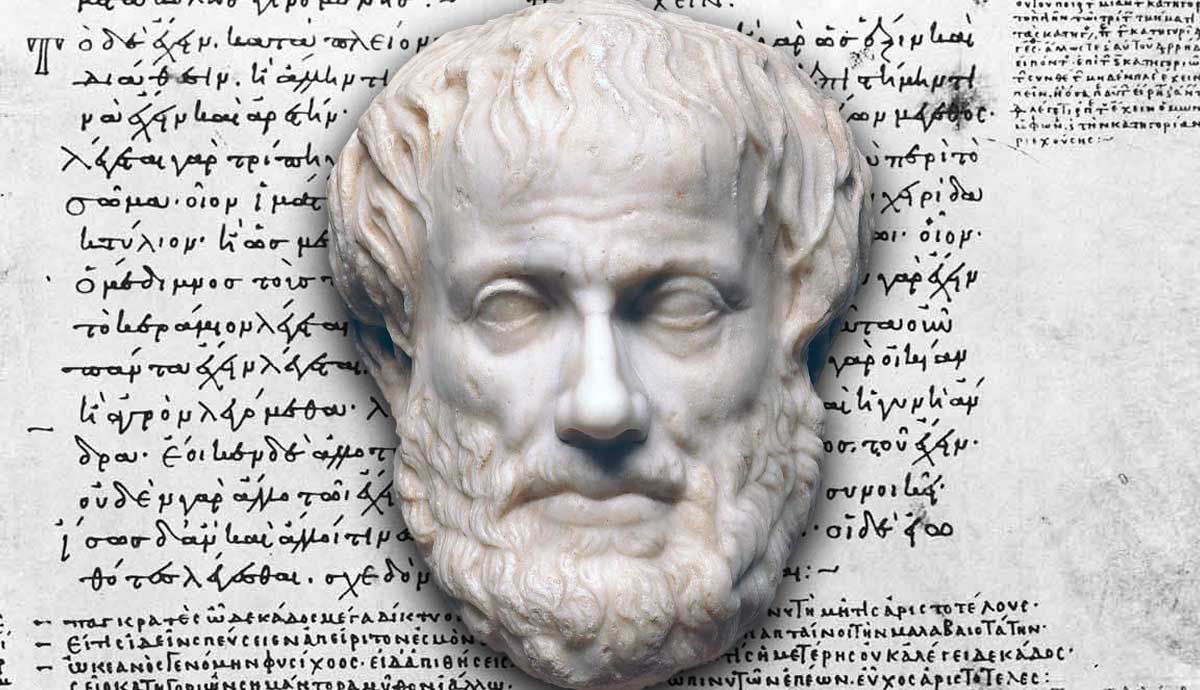
Aristotle’s Categories is a foundational philosophical work that provides a framework for understanding existence and engaging in classification. The text describes ten categories: substance, quantity, quality, relation, place, time, position, state, action, and passion. Aristotle uses these ten categories to formulate and discuss the different aspects of being. But these categories have also impacted logic, the philosophical study of reasoning. Here are five ways they have been fundamental to the field.
1. Aristotle’s Categories Provide Vocabulary for Logical Analysis

The main purpose of logic is to investigate how conclusions follow from premises in formal arguments. For example, if you have an argument consisting of the premises “Jane does not like any sweet things” and “Candy is sweet,” the conclusion that follows would be “Jane does not like candy.” This seems intuitive, but it is only because of Aristotle’s categories that such an argument can be understood.
The term “candy” can be understood under Aristotle’s definition of substance, the entity on its own. “Sweet” is a quality, a property that characterizes a substance. Aristotle’s categories provide a structured approach for analyzing the composition of arguments, allowing logicians to make statements about the validity and soundness of the argument.
2. The Categories Provide a Starting Point for Predication

Aristotle’s distinction between substance and accidents forms the foundation for the theory of predication in logic. In his work Categories, Aristotle defined substance as something that exists independently; it is the primary holder of properties and attributes. On the other hand, accidents are properties or qualities attributed to a substance, but their existence relies on that substance, and they do not function independently.
This clarification between the two allows logicians to assess the logical coherence behind premises. It gives them the tools to break down the premise into a subject (the substance) and a predicate (the accident) or to build a premise with a subject and a predicate. This process is known as predication, and it plays a critical part in forming propositions and evaluating their truth values.
3. They Paved the Way for Categorical Syllogisms

Categorical syllogisms are deductive arguments consisting of two premises and a conclusion. The first premise is the major premise: it makes a general statement and usually contains the predicate in the conclusion. The second premise is the minor premise: it makes a specific statement about a particular instance and usually contains the subject of the conclusion. So, for example, you might have:
P1: Some dogs are friendly.
P2: All dogs are mammals.
C: Some mammals are friendly.
“Friendly” in premise one is the predicate in the conclusion. “Mammals” is the subject in premise two.
The goal is to establish a logical relationship between the three. Categorical syllogisms are at the core of logic and were extensively studied by Aristotle. His category of relation, which describes how substances relate to each other, is especially important because it provides the framework connecting the premises and the conclusion.
4. Categories Provide Simplification and Clarity of Logical Terms

Aristotle’s categories have given logicians the ability to do a lot of work within their field — from the most basic level of creating a premise to ongoing, complex work in formal logic — but they’ve also given logicians the ability to talk about their work. Aristotle’s classification of terms into different categories helps to clarify the meaning and usage of logical terms. By being a categorization system based on functional status (substance, quality, relation, etc.), Aristotle’s taxonomy provides a method for understanding the scope and applicability of terms within logical discourse. This clarity is essential for communication, argumentation, and a coherent system, enhancing precision in reasoning and discussion.
4. Aristotle’s Influence on Medieval and Modern Philosophy

Despite centuries of argumentation and thought, Aristotle had a profound influence on later philosophers. Thomas Aquinas integrated Aristotle’s Categories into his metaphysical systems, using them to articulate God, creation, and the relationship between essence and existence.
During the early medieval period, even philosophers critical of Aristotle engaged with his Categories. Descartes used substance to discuss the distinction between mind and body. Immanuel Kant’s Critique of Pure Reason is seen as a response to Aristotle. He argued that the world is mediated by innate categories of thought, paralleling Aristotle’s categorization of reality.
Modern philosophers still engage with the Categories in their discussion of Metaphysics. David Lewis, in his modal realism, engaged with categorical distinctions when discussing possible worlds and their ontological status.
Modern logic differs from the classic logic that Aristotle knew and worked with. It is more formalized and symbolic, deals with modalities, includes metalogical concepts, and encompasses non-traditional logic, such as fuzzy and paraconsistent logic. Perhaps the biggest departure from the logic Aristotle knew is the mathematical influence over modern logic and, in turn, modern logic’s influence over computer science.

















